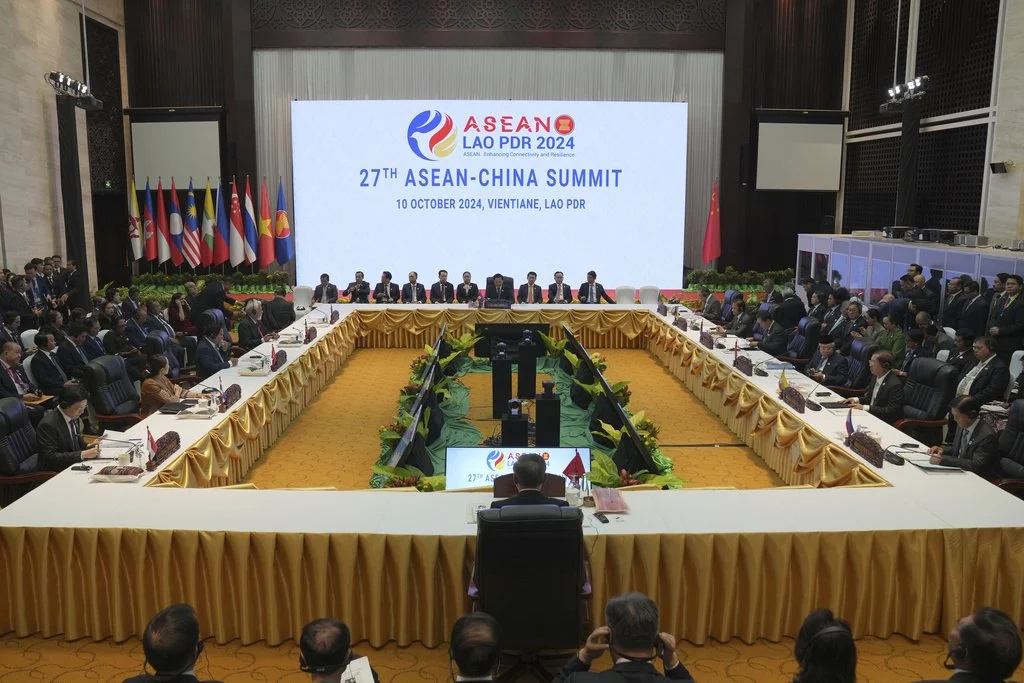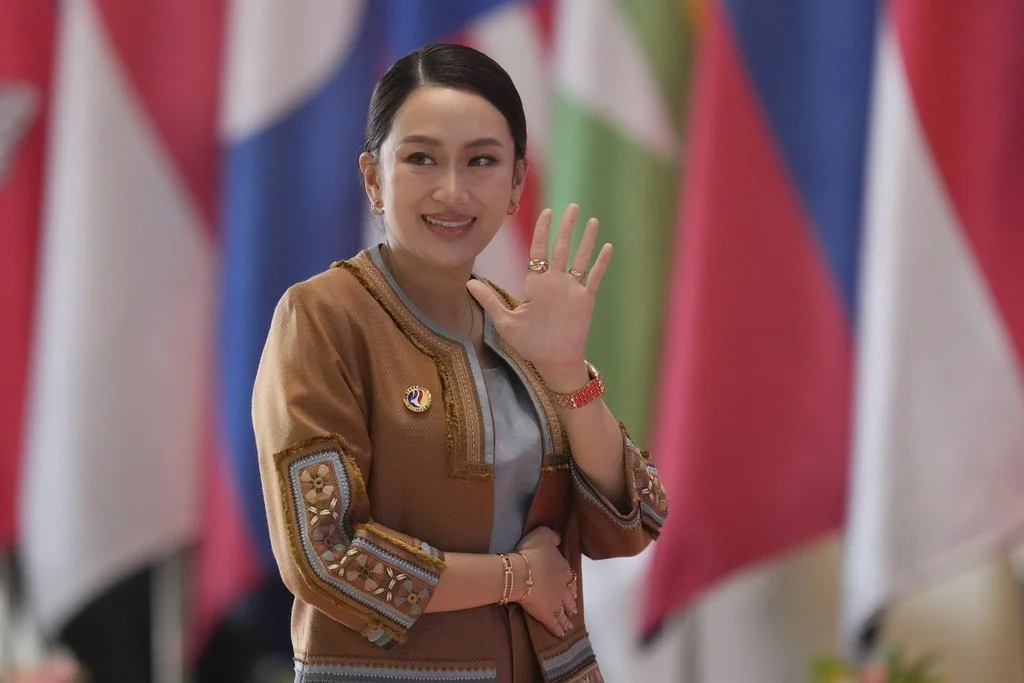ASEAN Leaders Meet in Laos to Discuss Worsening Civil War in Myanmar
Leaders attend the 27th Association of Southeast Asian Nations (ASEAN)-China Summit in Vientiane, Laos, Thursday, Oct. 10, 2024. (Photo: AP Photo/Dita Alangkara)
The Association of Southeast Asian Nations (ASEAN) summit began on Wednesday Oct. 9 in Vientiane, Laos with a major focus placed on tackling a critical issue within the region: the worsening civil war in Myanmar. Indonesian Vice President Ma’ruf Amin called Myanmar “ASEAN’s biggest internal challenge” and warned it could disrupt regional stability if a solution isn’t found soon.
Myanmar has been experiencing a civil war ever since the 2021 military coup and is still seeing a rise in the number of pro-democracy rebellion groups. It is currently believed that less than half of the nation’s territory is under the junta’s control.
ASEAN banned Myanmar from sending political representatives and generals to summits from 2021 until they can meet the requirements of ASEAN’s peace plan also known as the ‘5-Point Consensus,’ which has demonstrated very little success. As a result, Myanmar’s Foreign Ministry permanent secretary Aung Kyaw Moe was sent to this year’s summit. Some officials have criticized ASEAN’s bending of rules for Myanmar. Lina Alexandra, senior researcher at Indonesia’s Centre for Strategic and International Studies, stated that the admission of a senior Myanmar diplomat in meetings “will be perceived as ASEAN is compromising, confirming the concern that ASEAN is experiencing fatigue in dealing with the crisis.”
Thailand’s newest prime minister Paetongtarn Shinawatra clearly expressed the urgent need for engagement with Myanmar before elections take place. Thailand has offered to host an “informal consultation” for the members of ASEAN in December to find ways to address the worsening conflict in Myanmar that has resulted in various human rights violations and the displacement of millions of people. "ASEAN should send a unified message to all parties in Myanmar that there is no military solution. It is time to start talking," and “Thailand is ready to help,” stated Thai Prime Minister Paetongtarn Shinawatra.
Thailand's Prime Minister Paetongtarn Shinawatra arrives to participate in ASEAN-China summit in Vientiane, Laos, Thursday, Oct. 10, 2024. (Photo: AP Photo/Sakchai Lalit)
The junta in Myanmar has been conducting a nationwide census before the election – an act that many people are skeptical about because it is seen as a way for the military government to gather information about opponents. Dozens of parties, including the widely supported National League for Democracy (NLD) which the junta overthrew, have been disbanded and barred from registering to run. Prime Minister Paetongtarn indicated support for holding a fair vote and stated that “more political space and dialogue between parties are vital as Myanmar moves forward with elections.”
Member states within ASEAN are divided between those who want the junta to do more, and those calling for more discussions among warring parties, according to Thailand's foreign ministry spokesperson Nikorndej Balankura. "We hope that Myanmar should have internal consultation among all sides. And we encourage that. It has been our position all along," Balankura stated in a briefing in Vientiane following the leaders' summit.
Thailand has previously acknowledged the importance of recognizing the roles of Myanmar’s neighbors such as China and India in the peace effort. Paetongtarn emphasized this by saying “Thailand is strengthening the role of neighboring countries of Myanmar to complement ASEAN's effort.”


